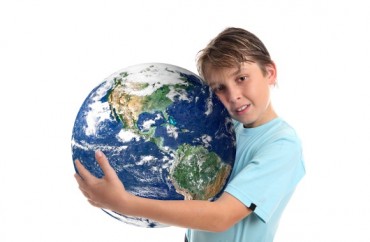
A dozen legal scholars from several countries want destruction of the environment made a crime on par with war crimes and genocide.
According to CBC, the group, the Stop Ecocide Foundation, is seeking adoption of its definition of “ecocide” by the International Criminal Court.
As defined by the SEF, ecoside is “unlawful or wanton acts committed with knowledge that there is a substantial likelihood of severe and widespread or long-term damage to the environment being caused by those acts.”
Law professor Philippe Sands of the University College London said the SEF wanted to cover things like “nuclear accidents, oil spills and deforestation,” but leave alone regular folks’ activities such as “driving to work and heating their homes.”
Sands is director of his school’s Centre on International Courts and Tribunals and “a key member of staff” in the Centre for Law and the Environment, according to his faculty page.
If the Stop Ecocide Foundation’s proposal is adopted by ICC member states, it would be only the fifth offense under the court’s domain. No international laws have been recognized since the Nuremburg trials of 1945. Sands says laws associated with that event “reflected the values of that time,” and the environment was not then a priority. Now, however, it’s “become a huge issue.”
Adoption of the ecocide law requires approval of two-thirds of ICC member states.
While the draft law is intended to fight climate change, the panel’s definition doesn’t actually include the term. Sands said that was intentional.
“The group took a view that it was best not to start listing particular effects, because once you start listing some, you exclude others and you send a signal that other kinds of harm are somehow OK. So we thought the lesser evil, so to speak, was to not mention anything. The definition plainly encompasses climate change,” he said. …
[A]dopting ecocide as an international crime won’t solve the problem of climate change, [Sands] said. Just like prosecuting crimes against humanity and genocide hasn’t ended torture or mass murder.
“What those crimes did was they changed human consciousness. They basically said this is not an acceptable form of behaviour. And I think that’s the proper way to think about the crime of ecocide,” Sands said.
“Not that it will magically repair the environment from one moment to the next, but that it will make us recognize the law as one of the instruments for achieving that change that we need to take greater care of our environment.”
Another issue is that the International Criminal Court can only prosecute individuals. Corporations and governments are beyond the court’s scope, but they’re responsible for many of the environmental hassles we face today.
Theoretically, however, Sands says heads of state and company CEOs could be subjected to the ecocide law.
MORE: University lecturer: White supremacy is behind climate change
MORE: Campus environmentalism as political theater
Like The College Fix on Facebook / Follow us on Twitter






Please join the conversation about our stories on Facebook, Twitter, Instagram, Reddit, MeWe, Rumble, Gab, Minds and Gettr.